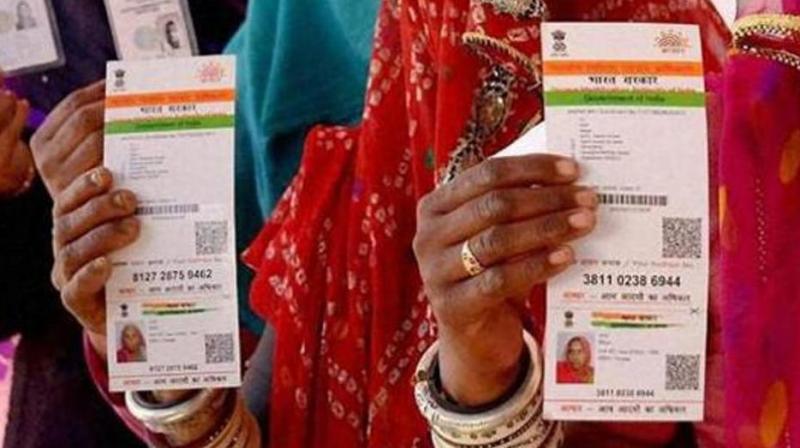SC's 'Right to Privacy' ruling a setback for Centre, Aadhaar mandates?

Mumbai: The Supreme Court on Thursday in a landmark judgement ruled that Right to Privacy was a Fundamental Right guaranteed by the Constitution under Right to Life enshrined in Article 21. While backing its judgment, the court said that "Right to Privacy is part of Right to Life".
The decision by the nine-judge bench could come as a setback for the government which of late has made quoting of Aadhaar compulsory for accessing social welfare schemes and filing of income tax returns. It has also made connecting Aadhaar with PAN mandatory, that if not done will lead to cancellation of PAN cards, the government had earlier said.
Recently, exchanges also indicated that they will make Aadhaar compulsory for stock market investors in order to make them able to participate in trading. Until now opening a demat account was compulsory for participating in trading.
Senior lawyer Prashant Bhushan while speaking to the media outside the Supreme Court said that the nine-judge bench had overruled earlier court observations that said the Right to Privacy was not an absolute right. "Today the SC has said that Right to Privacy is a Fundamental Right as it is part of Right to Life enshrined under Article 21," Bhushan said.
Constitutional law scholars had said the case would be a litmus test of Indian democracy, with potentially far-reaching consequences if individuals were allowed to challenge laws on the basis of individual rights.
Thursday's verdict overrules the apex court's July 19, 2017 judgement in which the SC had said that the right was not an "absolute right and the state may use some power to put reasonable restriction".
The bench in its July 19 observation had said: "We live in an age of big data and the State is entitled to regulate the data whether it is for the purpose of regulating crime, taxation or other activities... Right to privacy cannot be so absolute that it prevents the State from legislating or regulating it," the bench said.
The judges had referred to an earlier Supreme Court ruling that criminalised gay sex case on a petition filed by the Naz Foundation that had appealed to decriminalise gay sex.
SC's Right to Privacy ruling on Thursday sets a benchmark for the next apex court sitting that will give a final verdict on the Right to Privacy petition and will also look into whether the government can make Aadhaar compulsory for so many schemes or programmes.

